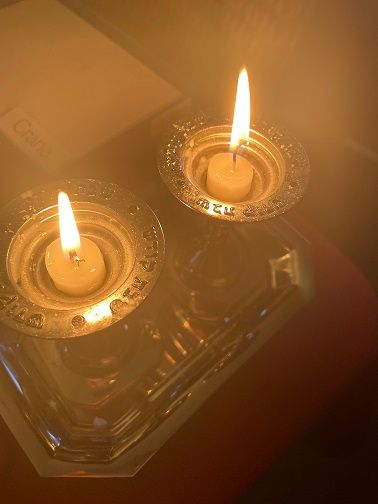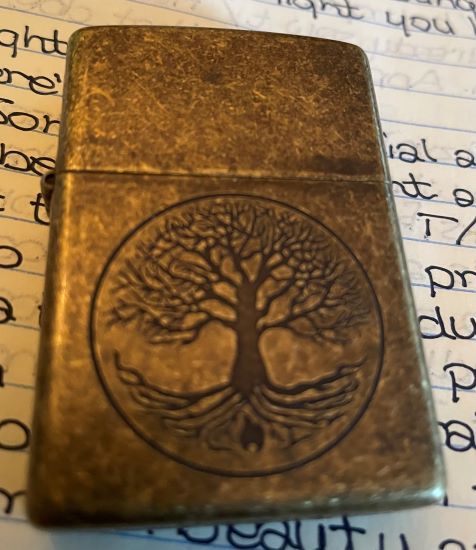The Blessing of Shabbat Candles

We'll gather tonight to welcome Shabbat. Here are the coordinates for our meeting:
Zoom
Meeting ID: 963 5113 1550
Password: 1989
Phone: +1 312 626 6799
(To unsubscribe from the email, click the link at the bottom of it.)
A Candle Lighting FAQ
As usual, thanks to My Jewish Learning, Chabad, and many other sources.
Shabbat is the most holy day of the Jewish calendar. On the one hand, there are a multitude of negative ways to observe Shabbat such as don’t kindle fire, don’t carry things, don’t ride a bicycle, don’t work, etc. On the other hand, there are few positive ways we are instructed to observe Shabbat. Of all the symbols we’ve come to associate with Shabbat, candle lighting is probably the most prominent positive way we observe Shabbat.
In the beginning, lighting Shabbat candles was practical. Since we can’t kindle fire once Shabbat starts, our ancestors would light candles at dusk, just before Shabbat began, so they wouldn’t stumble around in the dark. The earliest we can track back to a blessing said over candles is about the 9th Century. And our observance has evolved from there and continues to evolve today.
Why two candles?
Two candles are considered the minimum number to light on Shabbat. The precise meaning of lighting two candles is lost in time, but some believe that two candles represent the two different ways we were instructed to observe Shabbat: to remember Shabbat (Exodus 20:8) and keep Shabbat (Deuteronomy 5:12). Another reason some believe is that the two candles represent the two themes of Shabbat creation and revelation. Some families light one candle for every member of the family. Your mileage may vary.
Why do women traditionally light the candles?
There’s nothing specifically about women lighting Shabbat candles other than the home is typically to domain of women. In my family, as soon as our kids could manage lighting the candles, we passed the mitzvah on to them. It became a right of passage.
(I’m going to let you know that some people believe that women lighting candles is to atone for the sin of Eve, but I think that’s gross and that’s all I’m going to say about it.)
Why do we scoop the candle light into our face three times before we cover our eyes?
During the week we expend energy doing three types of things: action, speech, and thought. The Shabbat candles represent the energy that will be restored in us during Shabbat. We pull these three energies back into us to start replenishing them.
Why do we cover our eyes as we say the blessing?
This is a bit of a trick. We cover our eyes so that the first time we see the flames is after the beginning of Shabbat. Never mind that we already saw the flames when we lit them. Apparently that doesn’t count.
Do we blow out Shabbat candles?
Blowing out Shabbat candles is always preferable to burning down your house, but overall, we let the candles burn themselves out. (I blow out my candles as having open flames around my mother is a Bad Idea.) In another of my lives, my ex and I would set the burning candles in their candlesticks in the kitchen sink to burn themselves out as this seemed to be a safe place. (But it is preferred to leave Shabbat candles where they are and not be wandering around the house with them. In general, we do not use Shabbat candles to find our way about, read by or anything other than look pretty.)
Why do we like to make things fancy -- fancy candlesticks, fancy wine cups, fancy bread?
The urge to make things fancy has to so with the idea of hiddur mitzvah, the idea that when we perform a mitzvah, we should try to make it pretty. This is why we have a fancy ark, fancy Torah covers, etc. In my own little minhag (traditions) I use a brass Zippo lighter with the Tree of Life engraved on it.

I love Shabbat candles. When I look into the flames, I begin a total body relaxation. My mind is focused on peace and love. And my soul is open to receive the Shekinah in all Her beauty and I can’t help smiling. Sharing this ritual with you makes it extra special.
And may it be a blessing for you too.